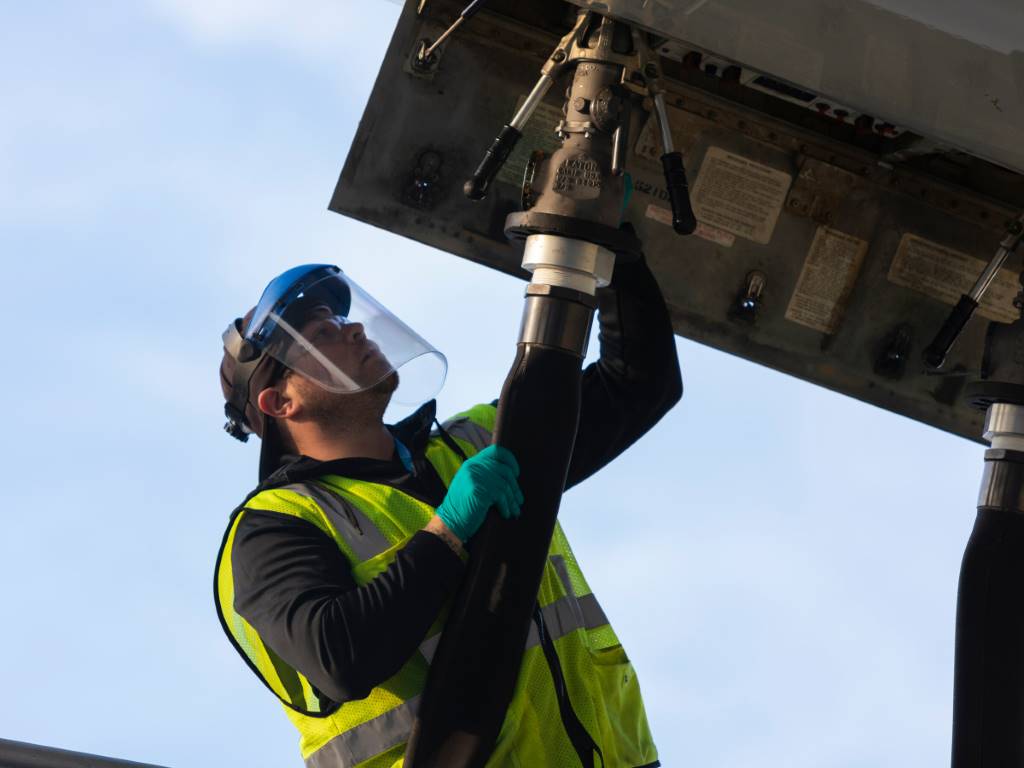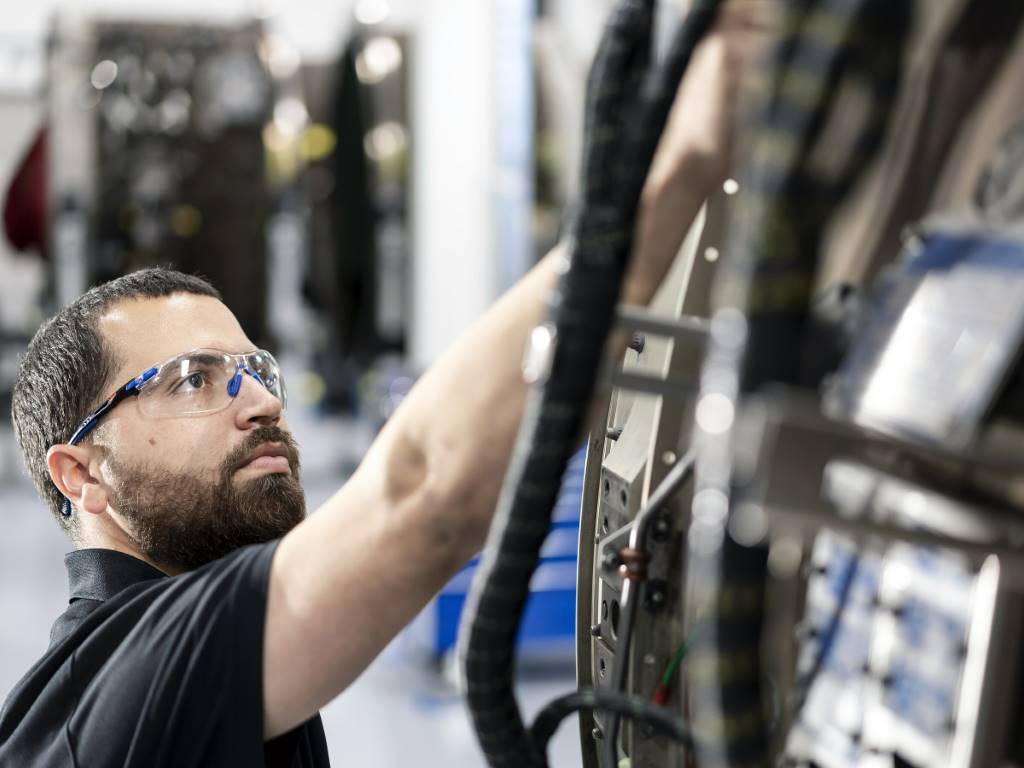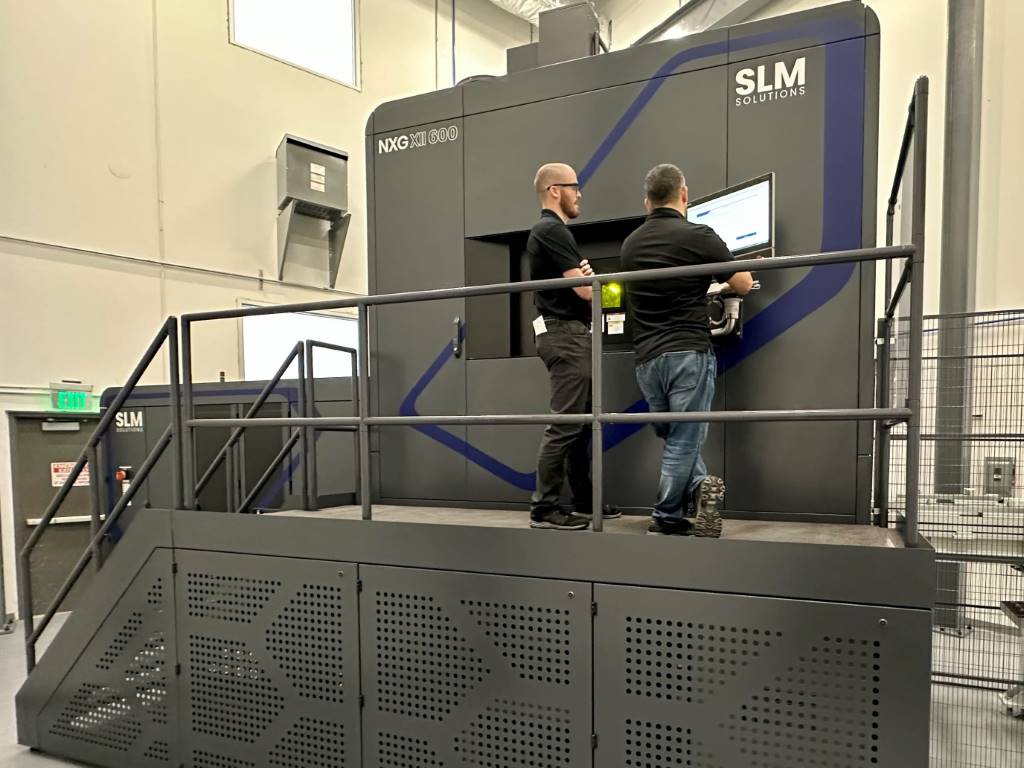High spindle utilisation more than doubles productivity

Subcontract machinist, BCW Engineering, has installed a Japanese-built Okuma MB5000H horizontal-spindle machining centre (HMC) with a 10-pallet pool to add capacity for producing high precision components.
The machining cell was delivered by UK agent, NCMT, to BCW's new, 30,000ft2 unit opened in October 2014 on the Innovation Drive aerospace supply park in Burnley. Tony Kilfoyle, Group Engineering Director said: “One aluminium aerospace part we machined on another make of twin-pallet HMC took 23 minutes to complete, whereas the Okuma finished it in well under half the time, taking just 11 minutes. “The reduction is partly due to being able to present a component on its pallet to the spindle more quickly, as it comes out of the pallet pool already fixtured, so set-up does not delay the start of the next cycle. Changeover is therefore limited to the automatic pallet change time, which is no more than 35 seconds. “Once the part is being machined, the cycle is quicker because idle times are short due to the 60m/min rapids in the linear axes and 2.5 seconds tool change. Additionally, the in-cut elements of the cycle are shorter, as metal removal is fast with the 26 kW/15,000rpm spindle.” Large reductions in machining times are evident across many aerospace and automotive parts produced in the cell by BCW for such well-known companies as Airbus, Safran Aircelle, Messier Dowty, GKN Driveline, JLR, Ford and Aston Martin. The subcontractor is a tier 1 supplier to many of them, developing and supplying prototypes as well as delivering production components to tight schedules. The performance of the new 40-taper, 4-axis MB5000H, which has 500 x 500mm pallets and a machining volume of 760mm cube, has been so impressive that the subcontractor has standardised on Okuma for all future HMC purchases. Kilfoyle commented that the decision was reinforced by NCMT's installation and commissioning of the machine, which he described as the most professional to date of any supplier to BCW's four factories in the Burnley area. He also pointed out that most of the group's 70 machine tools are hard-working production centres that run 24 hours a day. So the company looks for robustness of build, not only of the structure but also of the spindle, tool changer, rotary axis and coolant delivery system. These items in particular can cause problems on an HMC, but the Okuma was rated highest of all the shortlisted machines for their functional reliability. Another advantage of selecting this supplier, according to Kilfoyle, is 95% availability of machine spares for delivery within 24 hours from NCMT's UK stock and Okuma's European headquarters in Krefeld, Germany. This applies not only to the latest machine, but also to a pair of similar 4-axis, 40-taper, twin-pallet HMCs and a 50-taper model with 10-pallets that have been operated by the group since 2010/2011. They were purchased second-hand and have proved both accurate and reliable. NCMT supplied the latest 10-pallet cell with a number of options including a full NC rotary table, a 218-position tool magazine and high pressure coolant delivery at 70 bar. Provision of two extra pallets was included in the purchase, enabling 12 different fixtures to be set up at any one time. From Renishaw, an OMP60 touch probe for workpiece datuming and gauging has been fitted, as well as a TS34 table-mounted probe for tool breakage detection and automatic feedback of tool length offsets. A Cromar swarf management system and an Absolent mist extraction unit have been installed at the rear of the machine. With 10 pallets normally available, three jobs at a time are typically scheduled through the cell, each occupying three pallets, leaving one free station to fulfil low-volume, rush jobs. Programming is carried out from customers' CAD models using three seats of hyperMILL from Open Mind. Cycles are transferred directly to the machine's OSP-P300 control, which features 3D simulation on its 15” colour monitor. Established by Paul Biggs, Alec Cassie (managing director) and Andy Wheelan in 2002, BCW is the winner of many local awards, not least due to its rapid growth to £20 million annual turnover, generated by 124 employees. Another new factory is being built, adjacent to the existing premises on Innovation Drive, which is due for completion in March 2015 and will be dedicated to aerospace machining. Its centrepiece will be the group's biggest machine to date, a 70-tonne Makino MCD2016 twin-pallet, 5-axis HMC with a 2,000 x 1,600 x 1,500mm working envelope. It has been bought at auction and coincidentally, the Japanese manufacturer also employs NCMT as its sole UK agent, which will be responsible for providing spares and service to BCW. www.ncmt.co.uk












